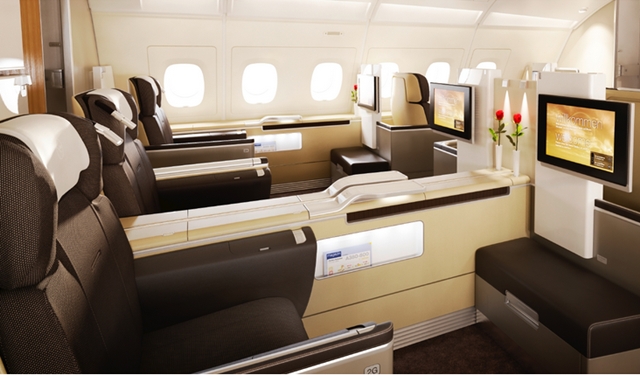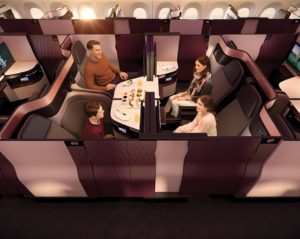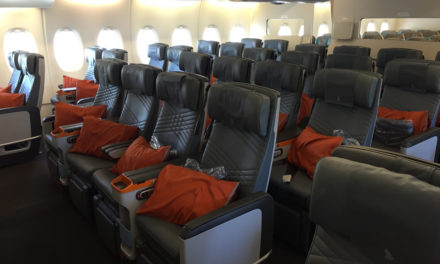There are few pleasures greater in life for me than a First Class flight. Be it the ever-improving inflight and ground amenities, gourmet food, excellent service or phenomenal hard products, a ticket with the F code on it always makes my eyes light up. However, with many airlines noticing a reduction in consumer spending, are First Class’s days numbered?
Air travel is more accessible to the general population now than ever before. Just look on any airline’s website and you’ll notice cut-throat prices to exotic locations. a few decades ago, however, it was a far different story. Air travel was for the privileged upper classes. The passenger was king. Airlines could charge so much for tickets that the passenger needn’t worry about stingy legroom or gross meals. But as technology put bigger, more efficient planes in the sky, more and more people could experience a trip above the clouds. This got the airlines thinking about cost-cutting and economics.
To understand more about this, let’s take a look at a BA 777-300ER. It has 122 Economy, 40 Premium Economy, 48 Business Class and 16 First Class seats. The going rates respectively are $876, $2,633, $6,723 and $8,715 round-trip across the Atlantic. A simple calculation involving floor space per seat determines that Business Class is by far the most profitable class, followed by Premium Economy, first and finally Economy Class. In an ideal world, therefore, airlines would fly all-Business configurations, but realise that only a small percentage of people are willing to fork out the extra cash, so fill the rest of the plane with less profitable seats to maximise load, and cater for other markets.
In addition to First Class being less lucrative per square metre than its premium counterparts, it’s also less profitable. Airlines rely on economies of scale to keep costs down on things such as food, lounges, staff and equipment. The fact that only a tiny proportion of their passengers fly in First Class means that they pay a lot more to cater for them than they would any other passenger. And then obviously the actual products must be of a much higher quality to justify the increased ticket price (champagne, caviar etc…).
As a result, many airlines are abolishing it altogether in favour of super Business Class products that are now revolutionising the industry and providing passengers with an experience that would far exceed the First Class cabins of a decade ago. From the passengers’ perspectives, the difference between Economy and Business Class is huge, but the difference between Business and First Class is less appreciable. A cramped seat vs flat bed, compared with a bit more room and a better soft product.
Qatar Airways’ New ‘super Business Class’ resembles a First Class suite
final thoughts
I don’t think First Class will become entirely redundant. There is still definitely a market for the product, though with ever-improving Business Classes, it is definitely going to see a huge reduction in popularity over the next few years. Many airlines (Turkish, Aer Lingus, United, Air New Zealand) have already sliced it from their offerings. First Class really comes into its own in countries with demand for luxury travel, such as Singapore and the Middle East, where passengers see it as less cost and hassle than having their own private jet. Whilst I’m reluctant to see my luxury companion dwindle, I look forward to the advances to come in the Business Class market.
What are your thoughts on the future of First Class? Does is warrant the extra price-tag? Is it destined for extinction?






This is a child with a child’s perspective that completely ignores the loyalty, marketing and branding perspectives that count for so much in corporate accounts, which is where the airlines actually make profits.